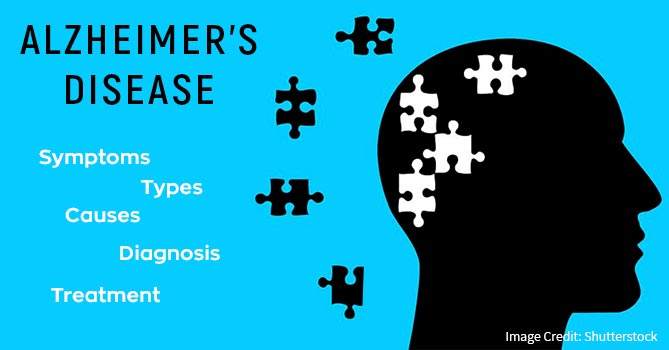Alzheimer’s is a brain functioning condition that causes multiple problems such as memory loss, improper thinking and movements. It is the most common type of dementia. 1 in 27 adults above the age of 60 in India has Alzheimer’s. The disease has no proper cure, can only be prolonged by regular medicine usage. In the beginning, it is hard to detect Alzheimer’s as the memory loss and confusion can be chalked down to old age, for it is pretty common for older people to have a fainter memory. In most cases, unfortunately, the condition is only checked when the brain symptoms have worsened beyond the point one can lead a normal life.
What are the symptoms?
The most common symptom is a troubling memory. If someone in your family above 55 has complained about confusion and a hazy memory, it is better to take action while the symptoms are new.
Some other symptoms are:
• Withdrawn personality as their memories become fuzzier, people lose touch with reality and begin to question their friends and family members, leading to a withdrawn personality and aloofness.
• Problems with communicating thoughts, either written or spoken
• Loss of direction outside
• Changes in mood and trouble understanding regular day-to-day operations.
Who is at risk of developing Alzheimer’s?
• Older people have the highest probability as with age people tend to lose sharp brain function in general which could in some instances lead to severe issues
• People with Alzheimer’s family members, if someone in your family has the disease, then you’re at a higher risk. Although proper research into the causes hasn’t been conclusive, genetics play a part in this condition. Hence blood relations of patients can also develop symptoms.
• Brain injury, people who have been in accidents or head trauma, can also lead to Alzheimer’s. A recent study showed that mental trauma such as PTSD, anxiety or depression could also lead to memory loss furthering Alzheimer’s.
How to diagnose Alzheimer’s?
Alzheimer’s can get diagnosed via a medical professional after going through your family history, neurological reports, brain scans, blood tests, and memory and image testing.
Treatment options?
Unfortunately, no conclusive treatment methods are available for the brain damage caused or to stop it from increasing. However, medication is known to increase the neurotransmitters in the brain and decrease the symptoms to a certain extent.
New wonder drug?
Just a few days ago, after a wait of 20 long years, USFDA had given a clean chit to a new drug to treat Alzheimer’s. Again, the medication cannot decrease or stop brain damage, but it has worked very well in increasing life expectancy with the symptoms and helping ease life for patients. The medication is new to India but is a very costly alternative to pre-existing medication options. Research for the cure is ongoing all over the nation with the hopes of finding a cure someday soon.




